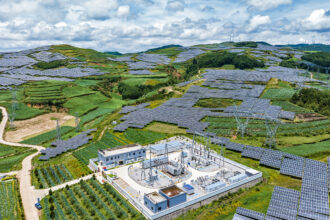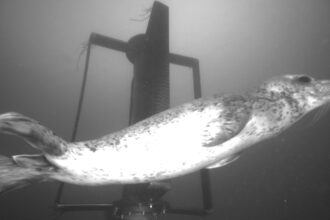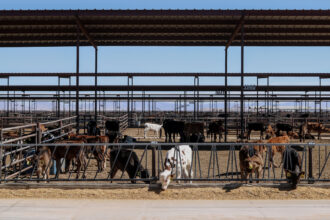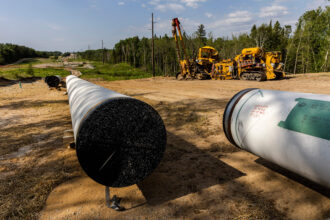EU Sees ‘Sea Change’ in US Attitude on Climate Talks (AFP)
The top EU climate negotiator said today that he sees a "sea change" in the United States’ willingness to engage on global warming. Representatives of 22 major carbon emitting nations held informal talks this week to pave the way for Copenhagen.
US Economic Stimulus to Boost Renewable Energy (Reuters)
After weeks of debate, Congress is expected to vote today on a final version of an economic stimulus package that would pump billions of dollars into "smart grid" projects and renewable energy.
Study: Greenland Ice Sheets Will Begin Melting by 2050 (Reuters)
Greenland’s ice sheets will start melting by 2050 if carbon dioxide emissions continue to grow at the current rate, pushing the planet to the brink, according to a report issued today by the Institute of Mechanical Engineers in Britain.
Arch Coal Exec Eyes Carbon Controls (Reuters)
The CEO of the second largest U.S. coal producer expects Congress to pass cap-and-trade legislation and says he could support carbon control if it helps develop carbon capture technology that allowing continuing use of coal.
Bleak Forecast on Fishery Stocks (BBC)
The world’s fish stocks will soon suffer major upheaval due to climate change, scientists warn. Changing ocean temperatures and currents will force thousands of species to migrate polewards, including cod, herring and prawns.
Australia’s Emissions Plan Wavers as Carbon Price Falls (Reuters)
Australia’s plans to curb greenhouse gas emissions could be derailed as the carbon price falls in Europe and the government convenes a parliamentary inquiry into its proposed emissions trading scheme.
Bushfires Release Huge Carbon Load (The Australian)
Australia’s bushfires have released a massive amount of carbon dioxide into the atmosphere – almost equal to the country’s industrial emission for an entire year.
Reducing Carbon Dioxide through Tech, Smart Growth (Science Daily)
A study finds that “smart growth” combined with hybrid vehicle technology could reduce cities’ carbon dioxide emissions significantly by 2050. In finds that doubling of population density in large U.S. cities would have a greater impact than full hybridization of the vehicle fleet.
New Shock Absorber Harvests Energy From Bumps In The Road (Science Daily)
A team of MIT students has invented a shock absorber that harnesses energy from small bumps in the road, generating electricity while it smooths the ride more effectively than conventional shocks. The U.S. military and heavy truck manufacturers are already interested.
Far-Off Food Threatens Vast Penguin Colony (Guardian)
Magellanic penguins living on the coast of Argentina are feeding 25 miles further from their nesting sites than they did only a decade ago, and the effort during breeding season is taking a toll on chances of having young, scientists say.
U.S. to Mull Protection for Alpine Rabbit Due to Warming (Reuters)
The U.S. government has agreed to study whether the American pika, a tiny cold-loving relative of the rabbit, should be protected under the Endangered Species Act due to warmer temperatures.
Will Companies Stay Green in a Recession? (PRI)
Corporate green hasn’t withered on the vine, but it isn’t blooming either, interviews with top executives reveal.
About This Story
Perhaps you noticed: This story, like all the news we publish, is free to read. That’s because Inside Climate News is a 501c3 nonprofit organization. We do not charge a subscription fee, lock our news behind a paywall, or clutter our website with ads. We make our news on climate and the environment freely available to you and anyone who wants it.
That’s not all. We also share our news for free with scores of other media organizations around the country. Many of them can’t afford to do environmental journalism of their own. We’ve built bureaus from coast to coast to report local stories, collaborate with local newsrooms and co-publish articles so that this vital work is shared as widely as possible.
Two of us launched ICN in 2007. Six years later we earned a Pulitzer Prize for National Reporting, and now we run the oldest and largest dedicated climate newsroom in the nation. We tell the story in all its complexity. We hold polluters accountable. We expose environmental injustice. We debunk misinformation. We scrutinize solutions and inspire action.
Donations from readers like you fund every aspect of what we do. If you don’t already, will you support our ongoing work, our reporting on the biggest crisis facing our planet, and help us reach even more readers in more places?
Please take a moment to make a tax-deductible donation. Every one of them makes a difference.
Thank you,











